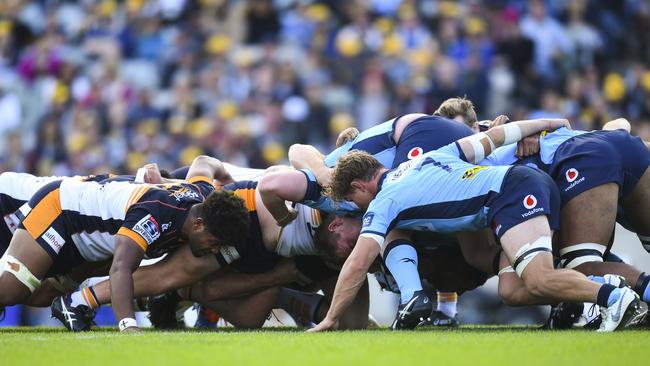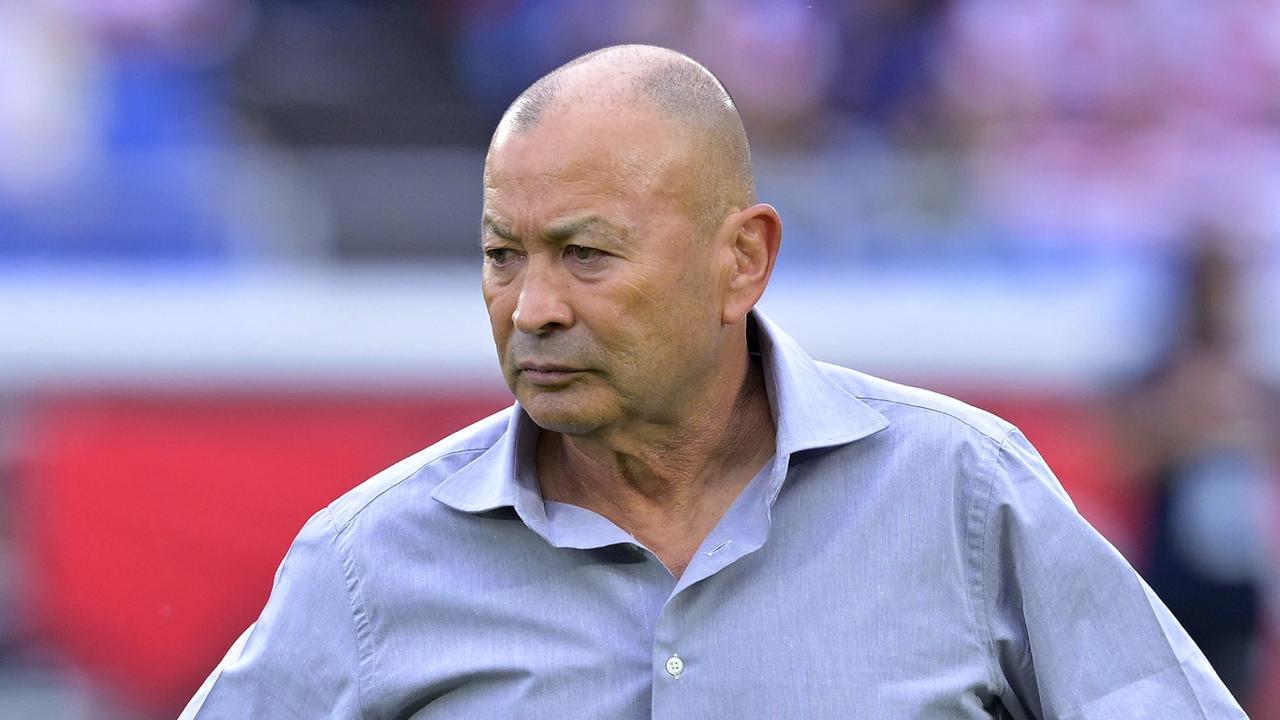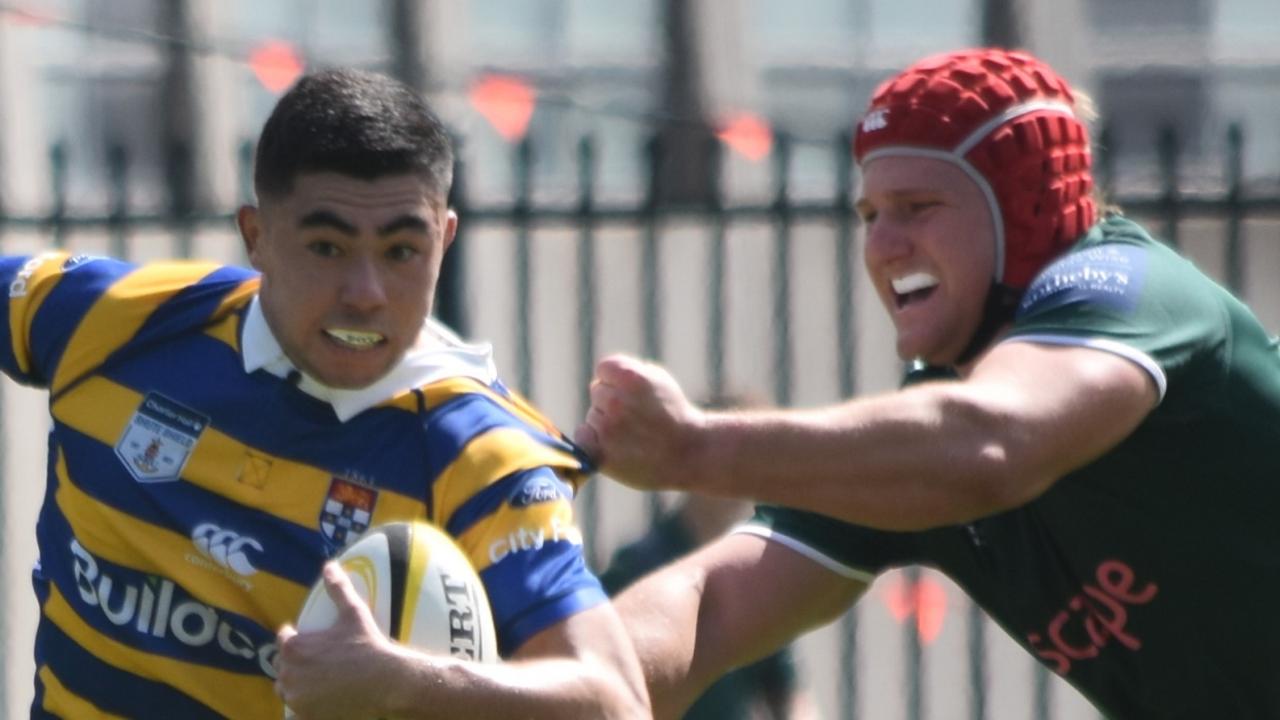
Our nation is in crisis, slipping into panic-driven hysteria. And while rugby, it could be argued, has gone beyond the crisis point, Frankl has something to offer.
Among many of his observations, some have relevance for our country and our game.
“Everything can be taken from a man but one thing: the last of the human freedoms — to choose one’s attitude in any set of circumstances, to choose one’s own way.”
More relevant to rugby: “When we are no longer able to change a situation, we are challenged to change ourselves.” This is a dimension of human behaviour of which rugby administrators seem incapable.
“Between stimulus and response, there is a space. In that space is our power to choose that response. In our response lies our growth and our freedom.”
Check out the shameful responses this week. As one of my listeners wrote: “A lot of the chaos in supermarkets can be traced directly to the me, me, me, get out of my way, selfie and instant gratification society; and if I can’t get it I’ll just damn well take it.”
What Frankl is saying is that life throws things at us that we cannot control, but it is our reaction to these challenges that determines their impact on us.
So, again, to cite Frankl, between that stimulus and response — that space — we can make a choice. Scream and carry on in supermarket greed, or embrace the challenge.
As one of my listeners said this week: “Thank God these people (supermarket vandals) are not leading us into a war … imagine them at Gallipoli, the Western Front, Tobruk. They’d pull out because of the risk of casualties and how people might feel.”
Which brings us to rugby. What choice has rugby made over the past several years in that “space”?
A virus also infects our game. The response to rugby’s health owes more to the supermarket behaviour than it does to the urgent need for change to which Frankl alludes.
The human condition has many wonderful characteristics. Witness the generous and immediate response of the public to the victims of drought and bushfires.
The poet William Wordsworth called this “the best portion of a good man’s life — his little, nameless, unremembered acts of kindness and of love”.
Why do these seem to be abandoned in favour of deliriously dumb, fear-driven behaviour?
In rugby, as in life, we need perspective. Prime Minister Scott Morrison has behaved superbly in difficult circumstances. He has fashioned a response.
But what response do we see to the virus that is overtaking our game here in Australia.
It was only a few months ago that the 2019 Rugby World Cup in Japan was the most watched rugby event ever. More than 857 million people worldwide watched the action — a 26 per cent increase on the 2015 World Cup audience.
There was an average live audience of 44.9 million viewers for the final between England and South Africa, which was a whopping 83 per cent increase on 2015.
Indeed, the World Cup was so successful, in terms of broadcast viewing audiences, that the private equity group CVC decided to commit almost $1bn to acquire stakes in the English Premiership, the Pro 14 and the Six Nations Championship.
They clearly believe rugby union has the potential to grow its audience and additional revenue from sponsors and broadcasters. But you can’t grow a game that people can’t see.
Both the AFL and NRL are developing plans to restructure their seasons so the fans and the broadcasters have something to work with.
Let’s face it. If the broadcasters have no live sport to broadcast, they have no advertising revenue. Without the advertising revenue they won’t have money to pass onto the sports in terms of broadcast rights.
Well, restructure is not for rugby. They have chosen another route.
Rugby Australia and SANZAAR have shut the game down, offering nothing to the broadcasters. It’s the rugby equivalent of the supermarket panic.
But it would not be the first time the Rugby Australia chief executive, and the board, have made rushed and botched costly decisions under pressure.
Their last costly major blunder was their call to sack Israel Folau over a religious social media post. Their actions now, in relation to the current health issue, will have an enormous impact on the game in Australia. If the broadcasters do not have advertising revenue from product, the professional teams will not receive resources.
The figures tell the story. The most recent annual report of Rugby Australia shows broadcasting rights bringing in $60m. But $30m of that is spent on the Wallabies, and $30m on Super Rugby.
If the broadcast money stops flowing, the players’ contracts will bury the code. But they are contracts. They are binding. The Super Rugby franchises and Rugby Australia will go broke.
Sponsorship brings in $30m.
But that, amazingly, is spent on Rugby Australia — $15m on staff and $15m on high-performance staff and programs that provide little high performance. The governing body is a bloated organisation. It should be disbanded.
If the broadcast schedule is cut and, let’s face it, right now, it’s abandoned, sponsorship will evaporate. Staff will be retrenched.
Match day brings in $10m. But there will be no match day for some time. So clubs and community rugby, which only get $3m, can expect nothing.
Let’s be brutal. If Rugby Australia doesn’t come up with fixtures acceptable to Fox Sports, Patrick Delany, their boss, can provide Rugby Australia the phone numbers of the receivers. It’s not just players, but everyone earning a living from the game, who has cause for genuine concern that Clyne, Castle and co have brought us to this point.
The word on the street is that Rugby Australia was almost broke before this rugby shutdown.
If that is true, it is almost certain the governing body could be financially “busted” before the end of 2020.
The equation is simple. With Fox Sports out of the race for the new broadcast deal, and Optus in a great position to low-ball their offer, it would seem the financial tsunami — repeatedly predicted around the traps — may strike sooner than expected.
Should Rugby Australia go under, there are a couple of options for the future. The first would see a bailout package from either a private investment group such as CVC or a philanthropist such as Andrew Forrest.
There is no way the federal government will be bailing out the footy codes in this country. They may provide support for workers whose jobs are in jeopardy as a result of government decisions. But they certainly won’t be stepping in to protect professional players who are earning 10 to 20 times the average wage.
A bailout from CVC or Andrew Forrest would represent the most seamless intervention.
That remarkable Australian Gina Rinehart sponsors many sports. Forrest, unburdened by a seemingly incompetent board, which he would ditch, could do the same for our game.
I am not too sure Forrest would be happy about Geoff Stooke being overlooked for a seat on the new Rugby Australia board.
Would it be a bad thing if you tipped the whole administration and structure out? Remember, before our game went professional, our rugby — club, provincial and national — was arguably the best in the world. And flourishing.
Real rugby supporters have little time for the current Super Rugby and Rugby Australia structures. They feel the professional game has no connection with the clubs, or with the schools, where the game is thriving.
Some rugby people in club land believe that the professional players are simply paid too much. Let’s face it, when a Test player gets paid something around $10,000 for losing, on top of a gigantic salary and first-class travel and accommodation, you don’t have to be too smart to understand why the code is on the brink of bankruptcy.
Look at the Waratahs. They would be delighted the game has been shut down. Brilliant players, transformed into a pub team.
They have conceded 214 points in six games, double what they have scored in attack. The so-called “Blue Wall” has become a “Blue River”, and a once proud rugby province is now a rugby embarrassment.
In Canberra, the Brumbies are having a red-hot crack and can be proud of their efforts. Their statistics resemble those of the Crusaders, who are clearly the benchmark team in Super Rugby.
I noted with interest the comments from Scott Robertson, the Crusaders coach. When asked about the best way to develop promising players, he said, “Teach them detail, grow their game, help them get better, help them grow their skill sets so they can be international players.”
He went on: “We should talk about them being great players. They need to have a mindset to be the best they can possibly be and we have to drive standards.”
I am certain no player disagrees. But it’s the people in charge who cannot deliver. Bad teachers produce underperforming pupils.
Well, from Victor Frankl to Carl Jung. He was a Swiss psychiatrist, and also a prolific contributor to the fields of psychiatry, literature and philosophy, among other things.
Jung said: “I am not what happened to me, I am what I choose to become.”
Rugby in Australia is at the crossroads. We have a choice.
We can continue as we are and become victims, or, as Frankl said: “When we are no longer able to change a situation, we are challenged to change ourselves.”
The change that is needed must be comprehensive. Sadly, there is no evidence that is likely.




Viktor Frankl was an Austrian neurologist and psychiatrist in the early 20th century. He was also a holocaust survivor.